by Mike Brunel | Nov 21, 2017 | Sales
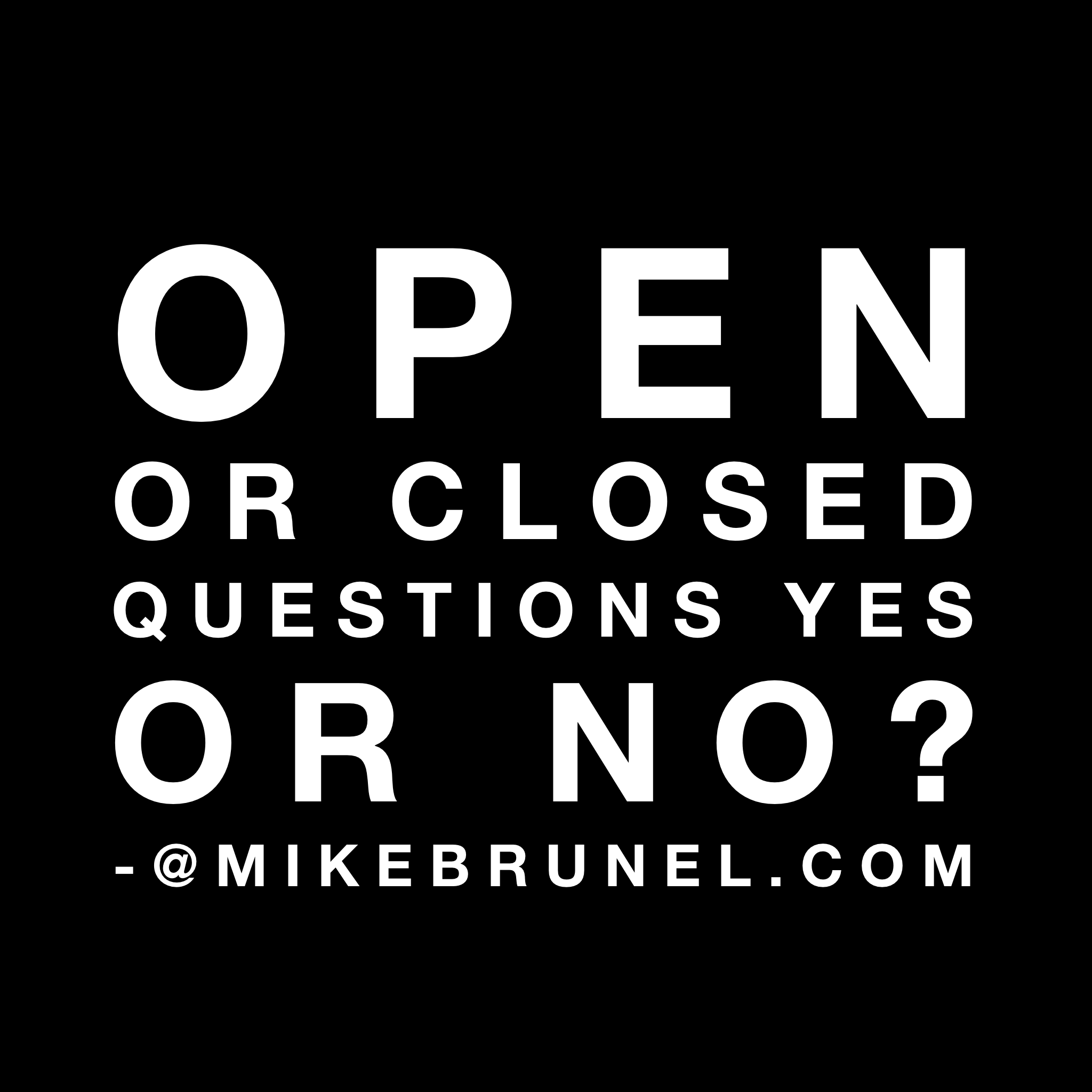 How do you train your salespeople to have fun selling?
How do you train your salespeople to have fun selling?
People can learn to ask open-ended questions. There’s a great exercise I do with salespeople, called “What’s in my pocket?” It was taught to me by one of my best staff members—and best friends—at NRS Media, Stephen Pead.
In a training session, you secretly put something unusual in your pocket. Be careful not to choose objects that are too easy to guess, like keys or a handkerchief. Instead, pocket something slightly out of the ordinary, like a wedding ring or a bottle top.
What’s an Open Question?
In the setup, clearly, explain the difference between open and closed questions. Open questions invite discussion, while closed questions usually elicit a “no” answer.
The team is instructed to ask 10 closed questions first to try to identify what’s in your pocket. As a trainer, you can only answer “yes” or “no”. The team never guesses it this way.
Open questions are the next part of the exercise. Have the trainees ask 10 open questions to ascertain the treasure you have hidden away.
What’s a Closed Question?
Example of a closed question might be, “What do you have in your pocket, is it useful?”
The answer is either, “Yes, it is useful,” or “No, it is not useful.” That response doesn’t get you a lot of information.
An open question might be, “What can you do with the object?”
You can answer these questions any way you like. Most of the time, the salespeople get it right within five or six questions.
The answer to this type of question will give you a lot more to go on. Just switching up a few words makes all the difference. Constructing good questions pays off, but people are reluctant to take the time to develop them.
Asking open questions might make some folks feel stupid, weak, or uncertain. My challenge to any salesperson is to assume leadership around asking the right questions.
Model it for your staff. Take the time to train them. Your team must understand that the client is not always ready to buy.
Sometimes you have to have a conversation to get them alongside. Salespeople need to know—and practice— the difference between open and closed questions long before the customer walks in the door.
ABOUT THE AUTHOR.
 Mike Brunel started Mikebrunel.com after being a successful entrepreneur and founder of NRS Media. He co-founded NRS Media in Wellington, New Zealand, expanded it into a global powerhouse in media sales and training, and was eventually responsible for opening offices in London, Atlanta, Toronto, Sydney, Capetown, and Bogota. His products and services are now sold in 23 countries and in 11 languages generating $350 million annually in sales for his clients. Mike sold the company in 2015 and now spends his time following his passions which include rugby, travel. His promise: “I can find thousands of dollars in your business within minutes – GUARANTEED” TRY ME OUT!
Mike Brunel started Mikebrunel.com after being a successful entrepreneur and founder of NRS Media. He co-founded NRS Media in Wellington, New Zealand, expanded it into a global powerhouse in media sales and training, and was eventually responsible for opening offices in London, Atlanta, Toronto, Sydney, Capetown, and Bogota. His products and services are now sold in 23 countries and in 11 languages generating $350 million annually in sales for his clients. Mike sold the company in 2015 and now spends his time following his passions which include rugby, travel. His promise: “I can find thousands of dollars in your business within minutes – GUARANTEED” TRY ME OUT!
by Mike Brunel | Nov 13, 2017 | Sales, Strategy
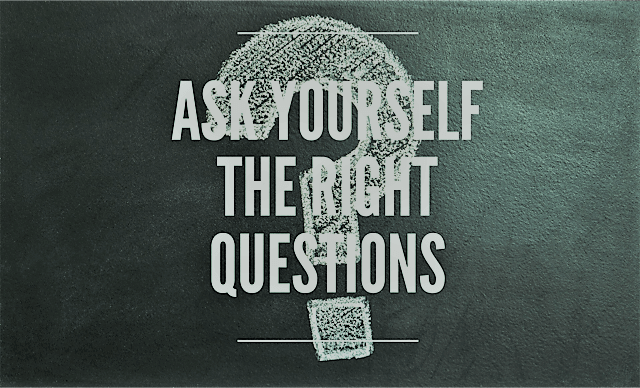
Ask yourself these Powerful Questions.
Last week I talked about the importance of asking yourself powerful questions when it comes to conditioning your mindset.
To finish off that discussion here are some business questions you might want to think about as you move into another week of selling.
• What am I most happy/excited about in my business?
• What am I most proud of in my business?
• How does it make me feel to employ other people?
• What am I committed to doing to improve sales
systems?
• How/why do I value my customers?
Set up Systems
With all of these questions, you are asking yourself about your business is it not the time to set up systems to routinize these questions for your sales team so their conversations with customers flow more naturally? Efficiency is especially important with today’s shorter buying cycles and your clients are considering several competitive offers at any one time; there is little time to waste.
What does a quality question look like in practice? A quality question is one that cannot be answered with a simple “No.” Can I help you is the wrong question, because “No, just looking” is not the answer you want? Where can you go from there? Nowhere.
The phrase that you thought was helpful has just shut down the conversation you were hoping to have with a potential client. Is it hard to come back from a dead end? You bet.
The Other Guy’s Shoes
How do you get your sales team to open up the conversation? Get them to think about the customer’s experience. Many salespeople are concerned about coming across as nosy. In reality, there are few topics that are truly off-limits. Obviously, you wouldn’t ask anything too personal, but if you genuinely indicate your desire to help, people are quite willing to talk about themselves.
Keep in mind that the customer’s most urgent need at the moment he or she walks in your door may not be to buy your
product.
It may be something much more basic, like a need to be understood. Before they buy anything, they may want to know that you appreciate them.
The importance of considering the customer’s current circumstances is succinctly told in a famous sales story, called The Man in the Desert.* It goes like this: A man comes into a store after living in the desert for months. The store sells best quality food and clothing, but those are not the first things the customer needs.
What he needs is water. The best conversation starter for this man is a glass of water. Maybe after his thirst is quenched, you will learn that he also needs lunch or a new jacket. He might need other things to help him feel better.
If you sell those things, you are in business. You have opened a dialogue that would never have taken place if you had not recognised the customer’s most basic need.
So many people stop at the glass of water. You almost always have to ask more than one question to find out what the client wants. If that person says, “I’m just looking,” you can respect that, but you know they must have come in for a reason. Have the courage to ask another question.
For example, if someone is looking at a product, ask them what they like about it. Get them talking. The only questions that don’t work are questions that close the conversation.
Of course, for a salesperson to be willing to let the conversation wander, he or she must be prepared with the things we talked about earlier, including sufficient knowledge of the product to confidently answer any questions that come back from the customer.
If you know your product well enough, the answers come intuitively, which makes a sales interaction feel more like a friendly chat.
Have a good week selling your stuff.
Mike
PS. Have you tried the 7 Day Challenge yet? It’s easy and it is FREE.
ABOUT THE AUTHOR.
 Mike Brunel started Mikebrunel.com after being a successful entrepreneur and founder of NRS Media. He co-founded NRS Media in Wellington, New Zealand, expanded it into a global powerhouse in media sales and training, and was eventually responsible for opening offices in London, Atlanta, Toronto, Sydney, Capetown, and Bogota. His products and services are now sold in 23 countries and in 11 languages generating $250 million annually in sales for his clients. Mike sold the company in 2015 and now spends his time following his passions which include rugby, travel. His promise: “I can find thousands of dollars in your business within minutes – GUARANTEED” TRY ME OUT!
Mike Brunel started Mikebrunel.com after being a successful entrepreneur and founder of NRS Media. He co-founded NRS Media in Wellington, New Zealand, expanded it into a global powerhouse in media sales and training, and was eventually responsible for opening offices in London, Atlanta, Toronto, Sydney, Capetown, and Bogota. His products and services are now sold in 23 countries and in 11 languages generating $250 million annually in sales for his clients. Mike sold the company in 2015 and now spends his time following his passions which include rugby, travel. His promise: “I can find thousands of dollars in your business within minutes – GUARANTEED” TRY ME OUT!
*KipTindall. The Container Store.
by Mike Brunel | Nov 6, 2017 | Leadership, Sales
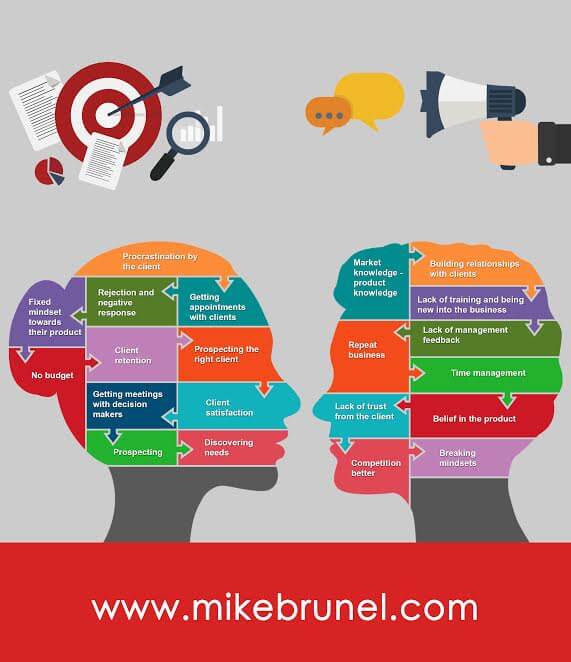
Start a Conversation with Yourself
A successful sales relationship hinges on the ongoing conversation you have with your customer. The dialogue starts, strangely enough, with the conversation you have with yourself.
You can listen to others more effectively when you know how to listen to yourself. I first learned this years ago at that first media company job.
They sent me to a conference in Houston, Texas. I had just come out of a long-term relationship and to be totally honest, I felt a little bit lost.
I remember sitting in a hotel room and coming across an infomercial featuring a very youthful Tony Robbins promoting something he called “Personal Power.”
I was intrigued enough to buy what Robbins was selling. When I got back to New Zealand, there was a box waiting for me with Tony’s signature on it.
Love of Knowledge.
I devoured the material; it re-ignited my love of knowledge and showed me how to improve my outlook and my self-talk.
I did all the exercises and kept a journal. One skill I learned was how to ask quality questions of myself. It started with questions recorded in a journal and culminated in a completely new focus that brought better results. The disparity in the quality of people’s lives often comes down to the difference in the questions they consistently ask.
You prime your mental computer to look for a particular type of answer. If you’re asking, “What’s wrong with me,” your mind will come up with an answer—you are stupid or you don’t deserve to do well.
On the flip side, if you ask questions like “How can I take this experience and use it to contribute to others’ lives,” your brain will come up with much more constructive answers.
You will be able to see the path forward, rather than feeling like you have reached a dead end.
Conversation Questions to help your Self Talk
Here are some examples from my long-ago journal:
• What am I happy about in my life right now?
• What about that makes me happy and how does it
make me feel?
• What am I most excited about in my life right now?
• What makes me excited?
• What am I grateful for in my life?
• What am I committed to in my life right now?
Conversations Matter.
Asking these questions helped me see clearly how positive questions lead to a growth mindset, which leads to better results down the road. When you think in terms of constructive, positive questions, your brain goes off and works on
them even when you’re not thinking about the answers consciously.
For example, consider the difference between “Why does this always happen to me?” and “How can I learn from
this experience?” They are simply worlds apart in terms of choosing your next step.
Develop a pattern of questions that empower you. If you seek a shift in your life, make this part of your daily routine.
Over time, asking these types of questions changes how you question your clients.
Have fun selling your stuff.
 Mike Brunel started Mikebrunel.com after being a successful entrepreneur and founder of NRS Media. He co-founded NRS Media in Wellington, New Zealand, expanded it into a global powerhouse in media sales and training, and was eventually responsible for opening offices in London, Atlanta, Toronto, Sydney, Capetown, and Bogota. His products and services are now sold in 23 countries and in 11 languages generating $250 million annually in sales for his clients. Mike sold the company in 2015 and now spends his time following his passions which include rugby, travel. His promise: “I can find thousands of dollars in your business within minutes – GUARANTEED” TRY ME OUT!
Mike Brunel started Mikebrunel.com after being a successful entrepreneur and founder of NRS Media. He co-founded NRS Media in Wellington, New Zealand, expanded it into a global powerhouse in media sales and training, and was eventually responsible for opening offices in London, Atlanta, Toronto, Sydney, Capetown, and Bogota. His products and services are now sold in 23 countries and in 11 languages generating $250 million annually in sales for his clients. Mike sold the company in 2015 and now spends his time following his passions which include rugby, travel. His promise: “I can find thousands of dollars in your business within minutes – GUARANTEED” TRY ME OUT!
by Mike Brunel | Oct 27, 2017 | Sales
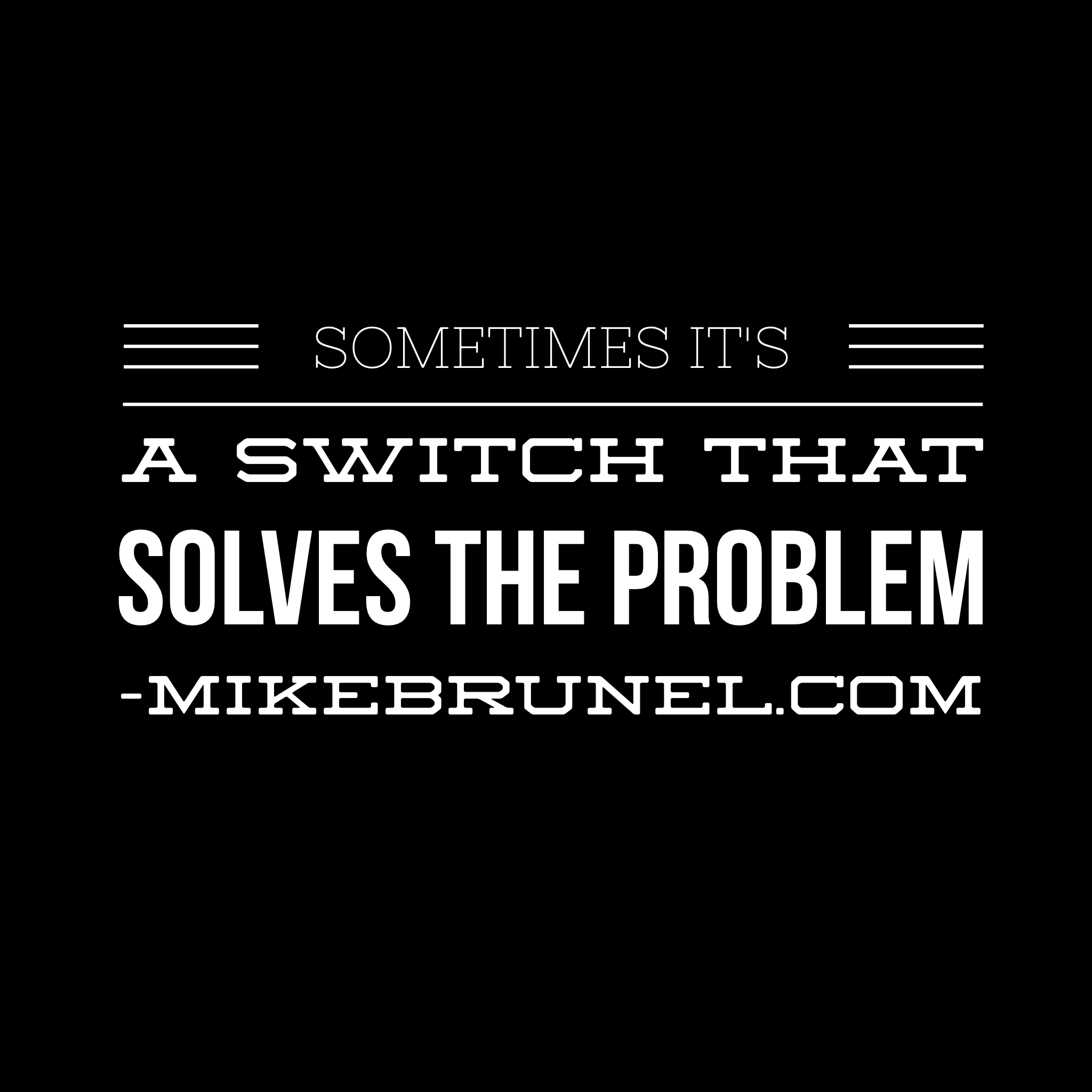
Reducing your business expenses is easier than you think
A leading manufacturing company based in Japan is said to have saved a quarter of a million dollars just by turning off the lights.
The company ran a competition with a reward asking people to answer this question:
How can we save money in our company without damaging, effecting or interrupting the day to day operation of the business?
It’s as simple as flicking a switch
The staff at the company embarked on a weeklong program in groups from senior management right down to the factory workers. Once the final entries were collated the prize went to one of the lowest paid workers.
Their suggestion was simple: turn all the lights out in the computer room and factory where automatic robots assembled parts for major components. The worker was awarded 20 percent of those first savings as their reward.
The solution is right in front of you
Sometimes the best solution to a problem was right in front of you the whole time. The answer doesn’t always need to be complicated and simpler is often better. Management doesn’t exclusively have the answers so put your problem to all your employee’s. You might be blown away by the responses from you lower-skilled departments.
Happy selling everyone!
Mike
About the Author:

Mike Brunel started Mikebrunel.com after being a successful entrepreneur and founder of NRS Media. He co-founded NRS Media in Wellington, New Zealand, expanded it into a global powerhouse in media sales and training, and was eventually responsible for opening offices in
London, Atlanta, Toronto, Sydney, Capetown, and Bogota.
His products and services are now sold in 23 countries and in 11 languages
generating $250 million annually in sales for his clients. Mike sold the company in 2015 and now spends his time following his passions which include rugby, travel. His promise: “I can find thousands of dollars in your business within minutes – GUARANTEED” TRY ME OUT!
by Mike Brunel | Oct 4, 2017 | Sales, Strategy
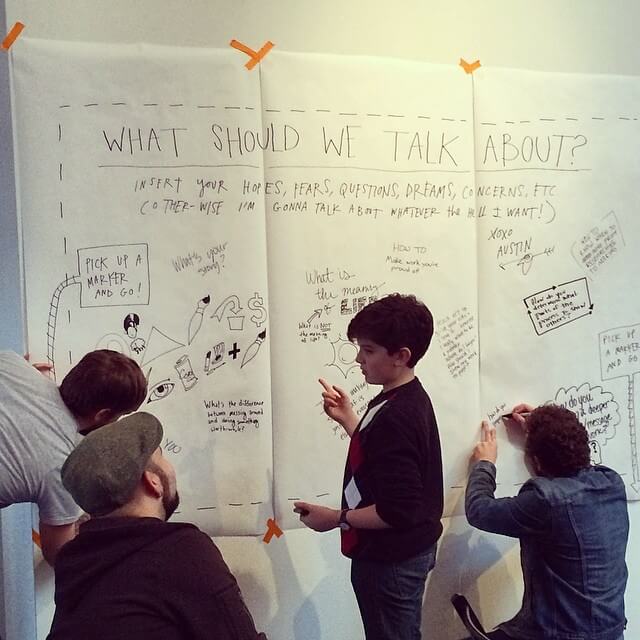
Photo – Austin Kleon- Steal like an Artist
“Are Sales are contingent upon the attitude of the salesperson? Or the attitude of the prospect”
I get to hear good stories from all over the world as to how salespeople are making a difference to people’s lives.
In many situations businesses worldwide are feeling (according to them) the pressure of not getting their numbers, the market is tough, it is not like it used to be, people are simply not buying like they used to, the excuses seem to go on and on.
I want to debunk that, it simply is not true. I know that if you offer value, and are committed to your customers, they will buy off you.
Money is still there.
The truth is that the money is always there, it may be less for some, but nonetheless, it is always there, it just moves around. It might move from your business to another, but the facts are that that retail revenue is up in countries like NZ and Australia.
It might move from your business to another, but the facts are that that retail revenue is up in countries like NZ and Australia.
The thing is that businesses have to do things differently; they need to think about how their clients are purchasing their product.
I can guarantee that in most homes these days television and other media is not the main source of entertainment or information.
The internet has become a big part of our lives.
Clients do research your product along with your competitors before they even venture into your store or place of business.
Information is Power.
Many business owners that I have worked with all over the world have had to come to terms with a changing market.
The ones I notice that are doing well train their staff on a regular basis, keep them up to date with all the new products or services, help them make the decisions, this is done usually at least once a week.
In any business product knowledge is based upon attitude, if you visit a store and a staff member does not know their product what happens?
You lose confidence, you are not really sure if they are to be trusted, you might retreat, and go off to someone else.
Want a secret to more Sales?
Product knowledge and information about a product have an invisible benefit. It gives the salesperson the “right attitude” it rubs off. They get confident, and the clients feel that confidence.
Try these simple exercises that work.
Here a just two exercises you can do in your business to get your team to buy into product knowledge training.
- POP QUIZ- write up 10 benefits of your most popular products, list what you think is the #1 benefit for the customer if they buy this product.
- TEST ONE ON ONE, OR IN A TEAM MEETING – Give each of your staff a test on every one of those products. You can do it in written form or as part of their one on one meeting.
These simple tests can give your business a foot up and you might get an extra share of the money that is out there.
Have a great day selling your stuff.
Mike
PS. If you want a simple test format to help you do that then download our 7 day Sales Mindset Challenge. Or if you need help to help your team make more sales or get more leads then contact me.
“Sales are contingent upon the attitude of the salesperson, not the attitude of the prospect” –William Clement Stone.
by Mike Brunel | Sep 21, 2017 | Sales, Uncategorized

All Systems Go- The Journey Begins.
In my last blog, I talked about Selling what you can’t see, and how Doug Gold, my business partner and previous owner of the More FM network came up with an idea to sell media inventory that went on to dominate the direct media sales world for well over 20 years.
After his first launch of the Gold Key Programme in Wellington New Zealand, we knew we were on to something special. The product and the problem had changed, as had our approach. Spots and Dot selling were out, and membership was in.
Looking back, it was revolutionary, no one was selling media this way. Subscription-based selling had been around for 50 years, now everyone thinks its the ‘new new thing”. All we did was apply that model to selling inventory on media companies.
I was initially invited into the company as a consultant, but when I saw what Doug had created, it was as if a light went on, I knew that if I could build a sales system that could duplicate the concept he was presenting in that room in a hotel in Wellington, I could leverage it.
I sat in on all the presentations as an observer for a week, watched how all the salespeople sold. I monitored how the clients bought. I recorded the presenter’s speeches and analyzed all the ways that they presented the product. Then I went away and created the first Image Plus programme. A predictable lead generation product that would pretty much guarantee a result. Then I took it to my partner who had just gone to Australia to set up our consultancy services, the wonderful Mr. Duffy.
I think we are onto something”
Brian Duffy trusted me to package it up and take it to a client of his in Hobart, Tasmania. I went in and said, “If you follow this system, I can write a million dollars in revenue for you guaranteed” We launched the program and generated $1 million in four days. In today’s money that’s around $4.5 million. Our cut was a commission fee on the revenue generated.
Boom! We were smoking! I remember at the time watching Brian writing on a small business card how many we had sold each session, after the third session, he came over to me and said. ” I think we are onto something, I count thirty gone of our allocated 100 memberships and its only day one, I’m excited”!
Success is Natural
People look at that success and assume it takes a team of natural salespeople to develop and execute such an idea; they don’t believe they can do it themselves. Granted, I have a passion for the business, but I came from a very small country where nobody was doing this sort of thing. We had some brave, courageous risk-takers as our first clients.
The early adopters in Hobart said, “Yeah, we’ll give it a go” and we were grateful. You may not think you are a salesperson, but if you are in any kind of business, you are just as much a salesperson as Doug, Brian, and me, and you can find clients willing to take the leap with you.
Practice Makes Perfect.
Of course, the journey that NRS Media took has not always been easy. I remember one time I was presenting near Lincoln, Nebraska, expecting 300 people to attend our seminar. Five turned up.
When something like that happens, all you want to do is hide. If you could, you would actually crawl in a hole, pull the cover over the top, and not come back out. Sometimes it seemed like I was on my own and the rebuffs were never-ending. I had a bit of natural resilience, but it really is a lonely place, selling in America is a tough gig. Many people avoid sales because they fear rejection.
Sell something you Believe in.
What you have to remember, though, is that if you are doing something you love, selling something you believe in, then you are performing a service. You are not ripping off the customer, or doing the wrong thing by them. Someone is going to buy it from you. As long as you remember that, you can lift your head back up and start again.
Take Flight from Fright
You should realize that most people don’t take naturally to selling. I often see people so frozen they’re afraid to pick up the phone. Folks freeze with fear, unable to make the call. They’re paralyzed with fright. Excuse my language, but they’re sh*$$!ng themselves because they’re so afraid of the reaction. Many people find selling terrifying; it’s a natural human reaction.The thing is, this fear comes through in their work and makes them less effective.
If you own a product, service, or a business, you have to sell. If you’re passionate, believe in that product, and know that your customer should have it, then don’t be afraid to go and present it.
Try not to think of it as asking a yes-or-no question. Instead, picture yourself helping the customer through the decision-making process. Simultaneously, you come to comprehend their needs, wants, and desires. If you can honestly say, “Look, this is my product. I believe in it. I think it’s right for you,” and you come from a position of integrity people will respond. All it takes is a shift in perspective. Stop thinking, “I’m not in sales.” Reframe that thought.
Call it Something Else.
Call it something else. Recognize it for the relationship building process it really is. Changing my mindset has helped me personally banish the fear of rejection. At first, I tried half-heartedly and then gave up, just like anyone else. I realized, though, that if I didn’t change the way I thought about sales, I was going to lose. Today, I help salespeople change their frame of mind so they’re working steadily toward a reward rather than flailing about trying to avoid failure.
I remember working with a new salesperson on this issue. He was seriously afraid of going out and talking to people, so we gave him some new words to practice just before the sales call.
We asked him to say “relationship building” instead of “selling” in his mind and we saw right away the fresh connections he was making. His new vocabulary changed his mindset. He was much more comfortable—and successful—in his calls after he implemented this simple tool.
Successful sales also means maintaining relationships with clients over a long time period without getting the payoff of a “yes.” In the early days of my business, I remember approaching clients who would say no three, four, or five times. I considered that a failure. I thought, “Well, I just can’t do it.”
What did I learn?
Successful sales also mean maintaining relationships with clients over a long time period without getting the payoff of a “yes.” In the early days of my business, I remember approaching clients who would say no three, four, or five times. I considered that a failure. I thought, “Well, I just can’t-do it.”
What I discovered, though, was that I had to see rejection as a temporary setback and make plans to move on. I had to say to myself, “Okay, Mike, what did you learn and what could you do differently? Could you apply a different approach to that problem? Let’s try it and see what happens then.”
If you want to build leverage into your business like we did, then let’s talk.
Selling is easy “it’s just how you think about it”
Mike
PS. Not ready for a catch-up call then dive into my ‘new’ just-released audio programme
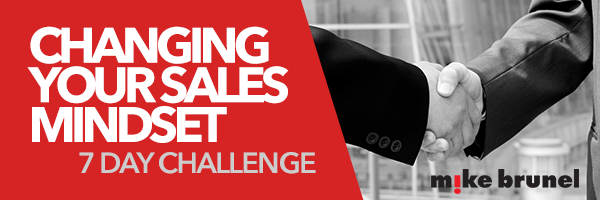
 How do you train your salespeople to have fun selling?
How do you train your salespeople to have fun selling? Mike Brunel started Mikebrunel.com after being a successful entrepreneur and founder of NRS Media. He co-founded NRS Media in Wellington, New Zealand, expanded it into a global powerhouse in media sales and training, and was eventually responsible for opening offices in London, Atlanta, Toronto, Sydney, Capetown, and Bogota. His products and services are now sold in 23 countries and in 11 languages generating $350 million annually in sales for his clients. Mike sold the company in 2015 and now spends his time following his passions which include rugby, travel. His promise: “I can find thousands of dollars in your business within minutes – GUARANTEED” TRY ME OUT!
Mike Brunel started Mikebrunel.com after being a successful entrepreneur and founder of NRS Media. He co-founded NRS Media in Wellington, New Zealand, expanded it into a global powerhouse in media sales and training, and was eventually responsible for opening offices in London, Atlanta, Toronto, Sydney, Capetown, and Bogota. His products and services are now sold in 23 countries and in 11 languages generating $350 million annually in sales for his clients. Mike sold the company in 2015 and now spends his time following his passions which include rugby, travel. His promise: “I can find thousands of dollars in your business within minutes – GUARANTEED” TRY ME OUT! 





